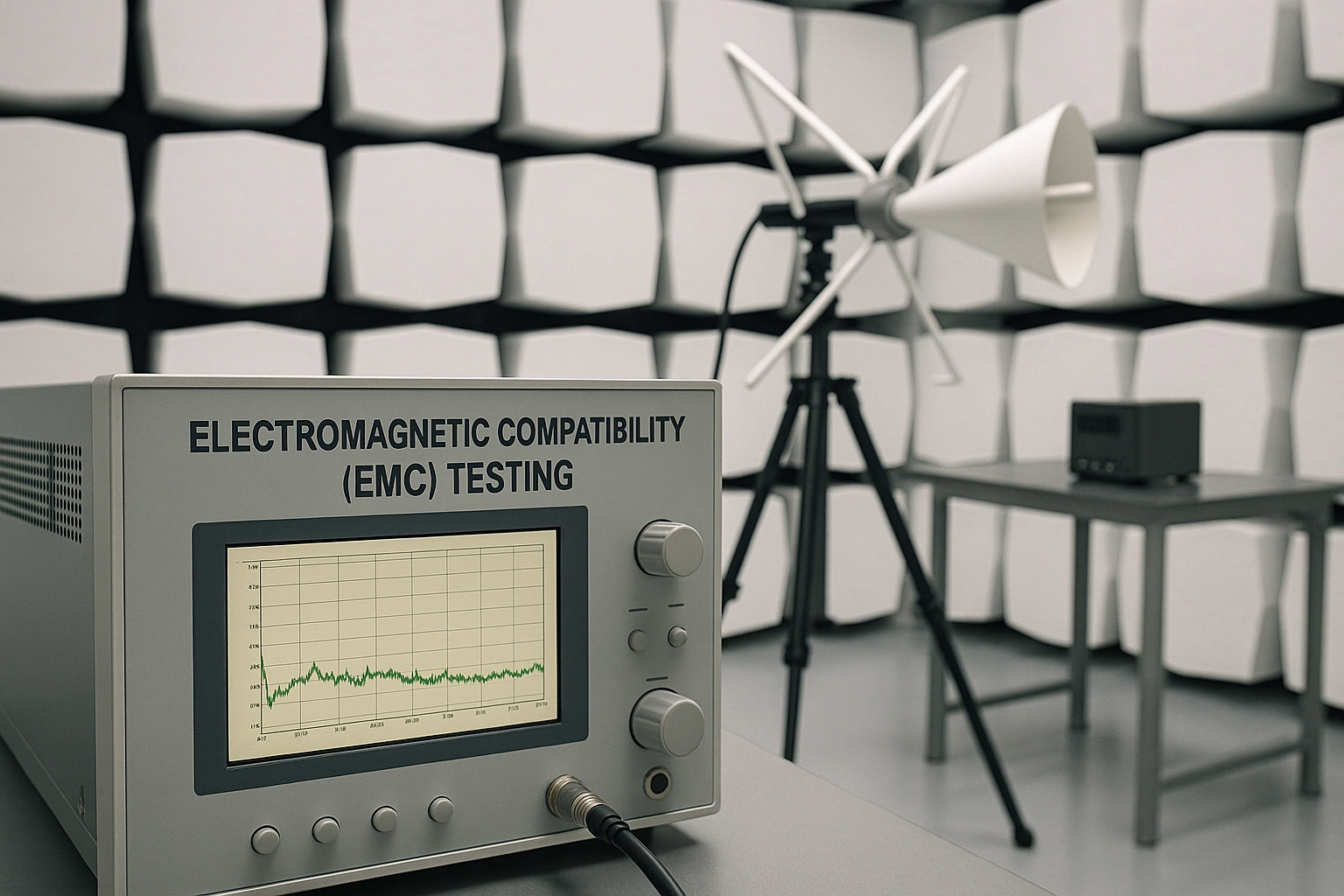CISPR 25 5 Automotive Component Radiated Emission Test
The CISPR 25-5 standard is a key regulatory requirement for automotive components that are to be used in vehicles. This test measures the radiated emissions of these components to ensure they do not interfere with other electronic devices and systems within the vehicle or external environment. The primary focus of this test is on compliance with the CISPR (Comité International Spécial des Perturbations Radioélectriques) standards, which are internationally recognized guidelines for electromagnetic compatibility (EMC).
The CISPR 25-5 standard applies specifically to automotive components that may be exposed to the vehicle's internal and external environment. The test ensures that these components do not emit excessive levels of radio frequency interference (RFI), which could disrupt other electronic systems within the vehicle or cause interference with external devices. This is crucial for maintaining a safe and reliable driving experience.
The testing process involves placing the component under test in an anechoic chamber, where it is exposed to specific frequencies that are known to cause interference. The emissions from the component are then measured using specialized equipment. If the emissions exceed the specified limits, the component fails the test and must be modified or replaced before being approved for use.
Compliance with CISPR 25-5 standards is not only a legal requirement but also essential for ensuring the safety and reliability of automotive systems. By conducting this test, manufacturers can ensure that their components meet the highest quality and reliability standards, which are critical for maintaining vehicle performance and occupant safety.
Our laboratory offers comprehensive testing services to help manufacturers comply with CISPR 25-5 requirements. Our state-of-the-art facilities include anechoic chambers capable of simulating real-world environmental conditions. We use the latest equipment and methodologies to ensure accurate and consistent test results. Our team of experts is well-versed in all aspects of EMC testing, including the interpretation of standards like CISPR 25-5.
By partnering with us, manufacturers can ensure that their automotive components meet the highest quality and reliability standards. This not only ensures compliance with regulatory requirements but also enhances the overall safety and performance of vehicles on the road.
Industry Applications
| Component Type | CISPR 25-5 Compliance |
|---|---|
| Electronic Control Units (ECUs) | Ensures proper functioning and reduces interference with other systems. |
| Audio Systems | Avoids audio distortion or loss due to electromagnetic interference. |
| On-Board Diagnostics (OBD) Units | Maintains accurate diagnostic readings by preventing interference from external sources. |
| Navigation and Communication Systems | Achieves reliable signal transmission without disruption from other components. |
The CISPR 25-5 test is critical for a wide range of automotive components, including ECUs, audio systems, OBD units, and navigation and communication systems. By ensuring compliance with this standard, manufacturers can guarantee that these components function reliably in a variety of environments, from urban traffic to remote highways.
- ECU: Ensures proper functioning and reduces interference with other systems.
- Audio System: Avoids audio distortion or loss due to electromagnetic interference.
- OBD Unit: Maintains accurate diagnostic readings by preventing interference from external sources.
- Navigation and Communication Systems: Achieves reliable signal transmission without disruption from other components.
Quality and Reliability Assurance
The CISPR 25-5 test plays a vital role in maintaining the quality and reliability of automotive components. By ensuring that these components meet the specified emission limits, manufacturers can avoid potential issues such as system malfunctions or interference with other electronic devices.
- Reduces the risk of electromagnetic interference (EMI) between different components within the vehicle.
- Avoids potential recalls due to non-compliance with regulatory standards.
- Maintains a safe and reliable driving experience for all occupants.
In addition to these benefits, compliance with CISPR 25-5 also enhances brand reputation by demonstrating a commitment to quality and reliability. This is particularly important in the automotive industry, where safety and performance are paramount.
Our laboratory offers comprehensive testing services to help manufacturers ensure compliance with CISPR 25-5 standards. Our state-of-the-art facilities include anechoic chambers capable of simulating real-world environmental conditions. We use the latest equipment and methodologies to ensure accurate and consistent test results. Our team of experts is well-versed in all aspects of EMC testing, including the interpretation of standards like CISPR 25-5.
By partnering with us, manufacturers can ensure that their automotive components meet the highest quality and reliability standards. This not only ensures compliance with regulatory requirements but also enhances the overall safety and performance of vehicles on the road.
Use Cases and Application Examples
The CISPR 25-5 test is applicable to a wide range of automotive components, including ECUs, audio systems, OBD units, and navigation and communication systems. By ensuring compliance with this standard, manufacturers can guarantee that these components function reliably in various environments.
- ECU: Ensures proper functioning and reduces interference with other systems.
- Audio System: Avoids audio distortion or loss due to electromagnetic interference.
- OBD Unit: Maintains accurate diagnostic readings by preventing interference from external sources.
- Navigation and Communication Systems: Achieves reliable signal transmission without disruption from other components.
For example, an ECU that fails the CISPR 25-5 test may cause malfunctions in the vehicle's braking or steering systems. An audio system that emits excessive levels of RFI could result in distorted sound quality, while an OBD unit that is not compliant with this standard could provide inaccurate diagnostic information.
In addition to these examples, CISPR 25-5 compliance is also essential for ensuring reliable communication between different components within the vehicle. This can include wireless communication systems such as Bluetooth or Wi-Fi, which must operate without interference from other electronic devices.





